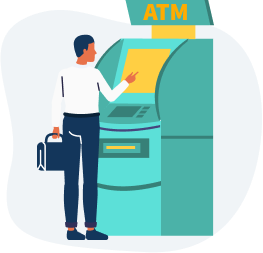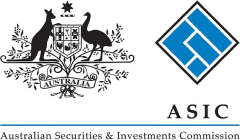Currency in New Caledonia
A Travel Money Guide to New Caledonia
New Caledonia is one of our favourite jewels in the South Pacific crown. But it isn’t a budget destination and to get the most out of your trip, it’s a good idea to learn everything you can about the local currency and payment options before you go.
The official currency of New Caledonia is the Pacific Franc (CFP or XPF) - money you’ll quickly become familiar with since plastic payments still aren’t common away from the tourist hotspots.
The currency used in New Caledonia
All across New Caledonia, they use the Pacific Franc, or Comptoirs Français du Pacifique, which has the international code XPF and the symbol CFP (or simply F).
The CFP was introduced in 1945 and is issued by the Institut d’émission d’Outre-Mer (IEOM). It’s also used in other French collectivities, including French Polynesia and Wallis and Futuna.
Do they Accept Australian Dollars in New Caledonia?
New Caledonia is a popular cruise destination. With a high number of single-day visitors from Australia, some businesses (particularly those near the cruise ship terminal) will accept AUD.
Even so, it’s better to have francs on hand. Businesses are likely to factor conversion costs into their prices. So you could end up paying a far less favourable rate in Aussie dollars than if you’d just used the local money.
CFP Franc Denominations
Unlike our own Australian dollar, the franc cannot be divided into any smaller subunit. Franc coin denominations come in 1, 2, 5, 10, 20, 50, and 100 francs. Banknotes are available in 500, 1000, 5000, and 10,000 francs.

Using your Bank Card in New Caledonia
Your bank card can get a heavy workout in businesses in Nouméa. But if you’re preparing to journey ‘into the bush’ (outside Greater Nouméa) or throughout the islands, it’s better to have cash on hand.
Some of the best travel money cards include debit, credit and prepaid cards. Debit and credit cards come with their own pros and cons when used overseas so we’ll have a look at each of them in more detail below.
Debit Cards
You’ll probably want a debit card if you plan to withdraw money from an ATM. While you may also be able to pay with a debit card in some businesses in the major destinations, you might discover some hefty fees on your account summary.
Depending on your bank, you could be hit with fees for foreign ATM withdrawals or currency conversions. But some banks are better than others; we recommend checking out Wise, ING, Citibank and Revolut, all of which have travel-friendly debit cards that waive these charges.


Credit Cards
Credit cards can come with some enticing perks, including added security, loyalty programs, and even free travel insurance.
But are they worth it?
Major local businesses, including hotels, restaurants, airline offices, and department stores, accept credit cards. But you might have to pay a surcharge. Away from the capital city, it’ll be much harder to pay by credit card.
It’s also worth noting that while most hotels and resorts accept credit card payments, you might have to pay cash if you’re staying in a gîte (holiday home for rent), guest house, or tribal accommodation.
Mastercard and Visa are widely accepted. You may also be able to use your American Express card, though local ATMs won’t accept them.
Just be aware of additional charges you may incur for foreign transactions. These could include:
- International transaction fees
- High exchange rate margins
- ATM fees
- Potential ‘cash advance fees’ if you use an ATM
If you still prefer credit cards over any other payment, consider going with a company that offers cards that waive certain travel fees. Bankwest Platinum and 28 Degrees both have travel-friendly cards.
Prepaid Travel Cards
We don’t recommend going down this route as the Pacific Franc isn’t generally supported by any travel money cards. It’s better to pick up a travel-friendly debit or credit card.

How to Buy Pacific Francs Before you Go
There’s a certain reassurance that comes with stepping off the plane (or cruise ship) already cashed up with francs.
Buying francs before you leave Australian shores isn’t just convenient. It can also save you money. But it all depends on where you get your francs in Australia. There are three main options:
- Buy XPF online and have it delivered or collect it in-store
- Buy from a money changer
- Buy at your home airport
Currency exchange offices at Australian airports are notorious for their poor rates and commissions so we recommend avoiding that option entirely.
You’ll easily find a bureau de change near you; even suburban shopping centres should have at least one. But it’s better to get your money from an inner-city bureau if possible. They have more competition, which is likely to drive their rates down.
If there’s already too much running around to do ahead of your trip, consider ordering francs online. You can choose to have them delivered or made available for pick-up at a location near you.
Online orders are often the best value too, especially if you go with S Money, which offers the same rates listed on Google and XE.com.
Learn more: The 5 Best Ways to Take Money to New Caledonia from Australia
How to Change Currency When you Arrive
Places like Nouméa, Île des Pins, and Lifou receive great numbers of tourists, so there are facilities to cater to money exchanges. Beyond these major destinations, it’s best to get cash before you venture into remote territory.

ATMs in New Caledonia
We’re all used to getting our cash out at ATMs so it seems like the most convenient way to secure local cash abroad. Plus there are BNC and BCI ATMs at the Nouméa airport, making things extra easy.
Fortunately, in larger New Caledonian destinations – including on each of the Loyalty Islands and Île des Pins – ATMs are available at banks and some post offices.
But it’s worth noting that some ATMs are only accessible during the bank’s opening hours. And even when they are open 24/7, they might not necessarily offer the best value.
Depending on your bank, you may have to pay for overseas ATM withdrawals and currency conversions. To reduce the amount you’ll pay in fees, try to withdraw just the right amount of money you’ll need for the duration of your trip.
Don’t forget: Let your bank know you’re travelling! If they detect a foreign transaction but aren’t aware you’re overseas, they could end up freezing your card.
Currency Exchange in New Caledonia
There aren’t as many money changers in New Caledonia as there are ATMs but most banks provide money exchange services. You can find money changers at points of entry into the country, including at the international airport and near the ferry terminal.
There are many banks with foreign exchange counters in Nouméa. The BCI money changer near the cruise ship terminal is particularly popular for cruise passengers.
You’ll have no trouble changing US dollars, Australian dollars, NZ dollars, euros, and Vanuatu vatu. Just make sure you bring proof of identity for money exchanges.
Banks are usually open from 7.30 am to 3.45 pm Monday to Friday (excluding bank holidays). But some banks in Nouméa also have 24-hour currency exchange ATMs, including:
- The BNP at 111 Promenade Roger Laroque in Anse Vata
- The BCI at 55 Promenade Roger Laroque in Baie des Citrons
- The BCI at 20 Rue Anatole France in central Nouméa
- The BNC in front of Casino Johnston supermarket at the Quai Jules Ferry
Though some banks have exchange counters on more remote islands, we don’t recommend risking it; pick up the cash you need at one of the major tourist destinations before venturing further afield.


Travellers Cheques
Not worth the bother! Travellers cheques are so outdated, very few banks even accept them any more.

